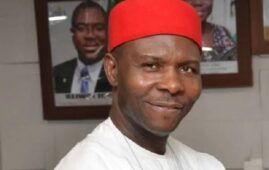By Zhang Penghui, People’s Daily
The international society refuted the recent U.S. stigmatization of China over the COVID-19 pneumonia, saying it fans up racism and discrimination, which does no good to the epidemic prevention in the U.S. and seriously impedes international solidarity and cooperation in combating the virus.
They believe the origin of the virus is a scientific issue, and to associate the virus with specific countries severely violates the WHO’s guiding principle on the naming of emerging infectious diseases.
The WHO has repeated for times that it opposes to associate the virus with specific countries and regions. When naming the novel coronavirus pneumonia “COVID-19” this February, WHO Director-General Tedros Adhanom noted that “Under agreed guidelines between WHO, the World Organization for Animal Health and the Food and Agriculture Organization of the United Nations, we had to find a name that did not refer to a geographical location, an animal, an individual or group of people, and which is also pronounceable and related to the disease.”
Having a name matters to prevent the use of other names that can be inaccurate or stigmatizing, and it also gives a standard format to use for any future coronavirus outbreaks, he added.
“Viruses know no borders and they don’t care about your ethnicity, the color of your skin or how much money you have in the bank. So it’s really important we be careful in the language we use lest it lead to the profiling of individuals associated with the virus,” said Mike Ryan, the executive director of WHO’s emergencies program.
The H1N1 pandemic in 2009 “originated in North America and we didn’t call it the North American flu,” he said, calling for solidarity and joint efforts of all countries.
Some U.S. media commented that the stigmatization made by certain U.S. politicians is purely racial discrimination which aims to divert the public anger over the ineffective epidemic control in the U.S.
The Atlantic said on its publication that the stigmatization aims to make the public believe it is not a fault of the U.S. government, but that is difficult because of the catastrophic misjudgment and its results. Besides, the stigmatization also fans up the anti-China sentiment, the magazine added.
U.S. Congressman Ted Lieu said the stigmatization has created panic among Asian Americans, and aims to divert the public anger over the ineffective epidemic control of the U.S. government. “One country that can help happens to be China. We can learn a lot from Chinese doctors and scientists who were on the front lines of this crisis and also cooperate and get vital medical equipment and supplies.”
The origin of the virus is a matter of science which requires professional and science-based assessment. It calls for scientific and practical researches, rather than stigmatization and racism.
Bill Gates, co-chair of the Bill & Melinda Gates Foundation recently took to an online community to answer its users’ questions. He corrected a questioner who addressed the virus unproperly, saying “The experience in China is the most critical data we have.”
Gates added that “They did their ‘shut down’ and were able to reduce the number of cases. They avoided widespread infection.”
Former Australian Prime Minister Kevin Rudd believes the stigmatization won’t help fix the problem, but impede relevant work. He suggested that the U.S. convene an emergency G20 meeting of health and finance ministers as it could rapidly produce an agreed policy framework for responding to the unfolding pandemic.
China has set a good example for the international community by lending a helping hand to other epidemic-hit countries in a timely manner, said Russian President Vladimir Putin. What China has done represents a resounding answer to the provocation and stigmatization by a certain country over the COVID-19 epidemic, he added.
U.S. politicians’ stigmatization of China’s efforts to combat the COVID-19 also faced criticism from international public opinions which hold that the practice will severely damage global cooperation and solidarity and impede the joint efforts to fight the pandemic.
Zheng Yongnian, professor with the East Asian Institute, National University of Singapore said on Lianhe Zaobao, the largest Singapore-based Chinese-language newspaper, that no country or government can deal with the pandemic alone. To defeat the virus calls for international cooperation, rather than demonizing the others, he added.
Foreign Policy magazine commented that Beijing is using the outbreak to boost its reputation for global cooperation while Washington plays the blame-Beijing game. The White House shuttered its pandemic preparedness office two years ago and recently proposed sharp cuts in U.S. financial contributions to WHO, which is not helpful at all for the international cooperation on pandemic control.
Tedros reiterated that politicalizing science won’t help. Human beings are now fighting a virus that we only know part of, and only solidarity can help us eliminate it.











Leave a Comment